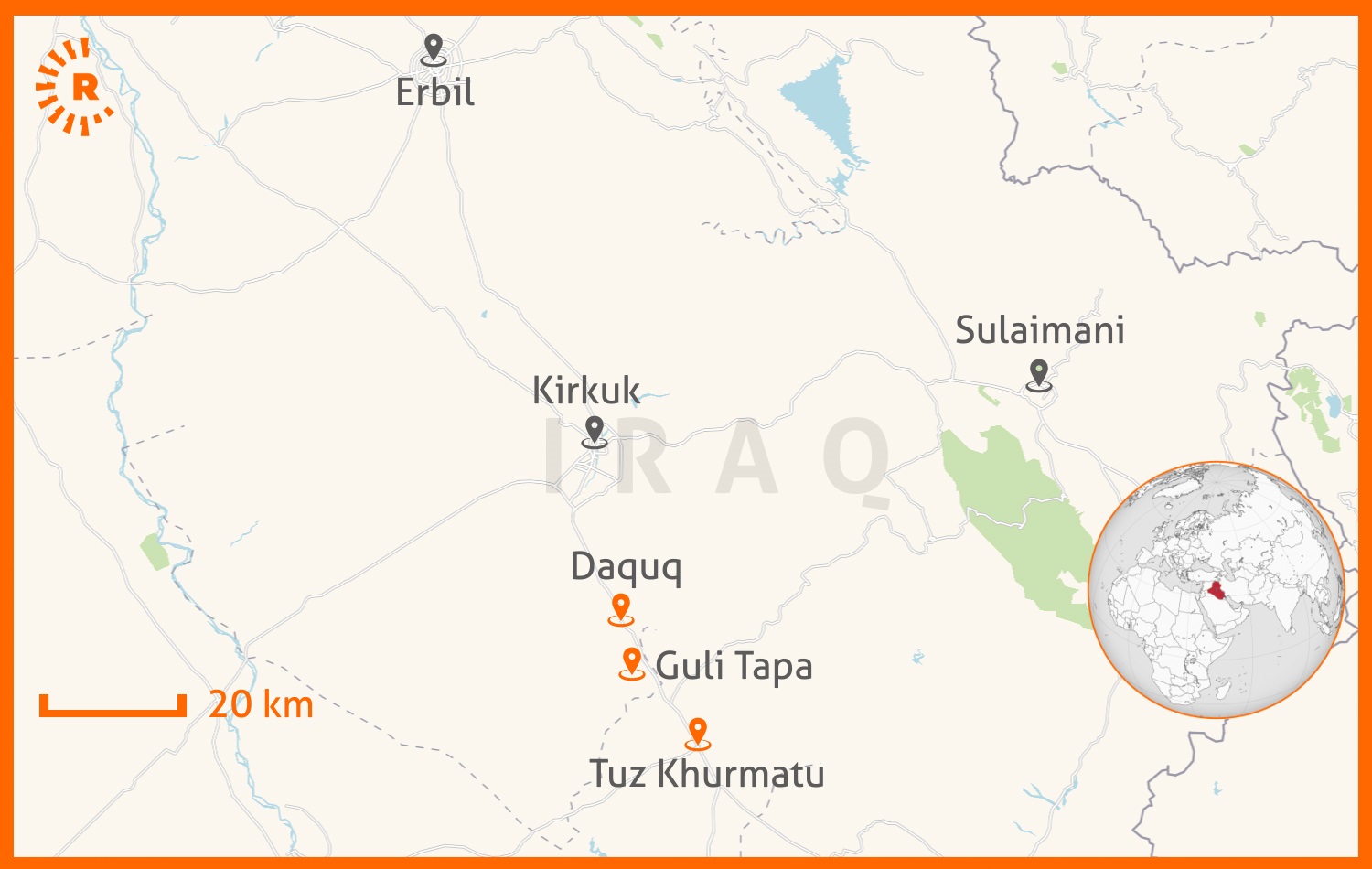ERBIL, Kurdistan Region — Clashes erupted south of Kirkuk between Kurdish villagers and more than a dozen Arab families who once lived in the area over claims of land ownership in the volatile region, a local Kurdish official said on Saturday.
The clash took place in Guli Tapa, a village located between Daquq in Kirkuk province and Tuz Khurmatu in Salahaddin province, Mala Karim Shkur, a Patriotic Union of Kurdistan (PUK) official told Rudaw. The area is disputed by the governments of the Kurdistan Region and Iraq.
"Nearly 15 Arab resettled families who have broken into a village located between Daquq and Tuz Khurmatu were confronted by the Kurdish inhabitants of the area," Shkur, based in Tuz Khurmatu, told Rudaw.
Footage captured by Kurdish local Araz Dawoodi appears to show a crowd of Kurdish villagers carrying sticks and stones, with a group of Arab families stood in the distance. An Iraqi federal police vehicle is stood between the two crowds, while their personnel is seen moving villagers back. Dawoodi calls on the Kurds to stop throwing stones at the Arab families because there are women and children among them. Gunfire can be heard, but it is unclear from the footage where the fire is coming from.
Daquq mayor Luis Sheikh Fandi denied that there were any armed clashes taking place between Kurds and Arabs in the area, but he did say that "there are land ownership issues in Daquq which has remained unresolved between Kurds, Arabs and the Iraqi government."
As part of its Arabization policy, Saddam Hussein's Baath regime constructed a village called Mahawsh for Arabs relocated from elsewhere in Iraq in the 1990s on Guli Tapa land belonging to Kurdish villagers, Shkur said.
Following the collapse of the Baath regime in 2003, the resettled Arabs were returned to their areas of origin further south in Iraq, with land returned to the original Kurdish inhabitants, he added, according to Article 140 of the Iraqi Constitution - designed to resolve disputes of territory claimed by Iraq's various ethnic and religious groups.
"They have now come back and want to once again invade the Kurdish farmlands," Shkur said. "We will move to this village to support the Kurdish inhabitants and farmers and will not allow the resettled Arabs once again to return to this region."
However, since since federal forces took control of disputed territories including Kirkuk on October 16, 2017, Kurdish locals have alleged that a "re-Arabization" of the area is underway.
Related: Resettled Arabs confiscate Kurdish farmlands in Kirkuk










Comments
Rudaw moderates all comments submitted on our website. We welcome comments which are relevant to the article and encourage further discussion about the issues that matter to you. We also welcome constructive criticism about Rudaw.
To be approved for publication, however, your comments must meet our community guidelines.
We will not tolerate the following: profanity, threats, personal attacks, vulgarity, abuse (such as sexism, racism, homophobia or xenophobia), or commercial or personal promotion.
Comments that do not meet our guidelines will be rejected. Comments are not edited – they are either approved or rejected.
Post a comment